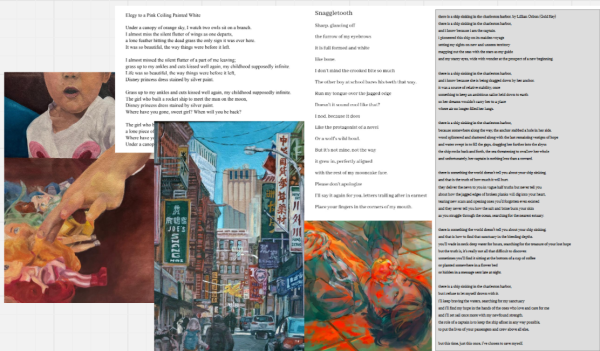State Rep. Todd Rutherford wants to lower SC drinking age to 18
The controversy begins
Yesterday (November 11th 2021), South Carolina House Minority Leader, Todd Rutherford (D-Dist. 74, Richland County), pre-filed a bill to lower the minimum drinking age to 18 in South Carolina. Let’s take a closer look at the past, how we got to this point, and what this would mean for the future.
Throughout history, the drinking age of South Carolina has changed numerous times. Before prohibition (before 1919), the drinking age for any alcoholic beverage was 21, then it was lowered in 1935 to 18 for the purchase of beer. During the Vietnam War in the 1970s, there was backlash across all 50 states that a male older than 18 could be drafted into the military and fight for their country but not purchase alcohol or vote. This led to the passage of the 26th amendment, allowing anyone over the age of 18 to vote, which also caused a lowering of the drinking age to 18 in most states. Then in 1984, the Drinking Age Act was passed. This Act was passed by the United States Congress and signed into law by President Ronald Reagan and it declared that 10% of federal highway funding would be taken away from any state whose drinking age was lower than 21. This bill was challenged and upheld by the Supreme Court in 1987. As a result, every state raised their drinking age to 21.
Until now, there has not been a debate in South Carolina on lowering the drinking age, but since President Biden signed into law the infrastructure bill, there has been new discussion. The Infrastructure Bill is a historic bill passed by Congress and signed into law by President Biden last Friday night (November 5th). This bill had bipartisan support and is a relief bill in response to the Covid-19 pandemic. It consists of more than $1 trillion in federal funding for roads, bridges, ports, rail transit, safe water, the power grid, broadband internet and more. Specifically, South Carolina will receive nearly $10 billion through the bill. It is estimated that $275 million would go to bridge repairs, $5 billion would be paid out over five years for public transportation, and $4.6 billion would pay for highway improvements. Currently, South Carolina reports that it receives $733 million in federal funding a year for road and bridge development. So now South Carolina will receive $5 billion dollars, almost 7 times the value of their annual spending. This is why South Carolina House Minority Leader Todd Rutherford is now proposing a bill to lower the drinking age.
Rutherford has used this opportunity of excessive funding to propose this new law as South Carolina has enough money to not be significantly affected by the punishment of losing 10% of annual federal highway funding disclosed in the Drinking Age Act of 1984. If South Carolina lowers the drinking age, it will lose around $73.3 million in federal funding which could easily be replaced by the more than $5 billion South Carolina will have just received through the Infrastructure Bill.
Some may wonder why there is a push by Rutherford to lower the drinking age. He explained in a statement from the House Democratic Caucus Wednesday that, “If you are old enough to fight for our country, if you’re old enough to vote, if you’re old enough to sign on for thousands of dollars of student loans for a college education, then you are old enough to have a drink.” Thus Rutherford clearly believes this is an issue of personal freedom. This argument has been around for decades most notably during the Vietnam War when the drinking age was lowered. Additionally, Rutherford wants to set an example for the rest of the country in how a small crime like underage drinking should be dealt with rather than some excessive punishment. He remarks that, “Rather than criminalize adults for doing something that is otherwise legal, we can show the rest of the country that there is a better way.” Some also argue that lowering the drinking age will combat binge-drinking, that the more accessible alcohol is, the less sought after it will be and the rate of dangerous consumption in unsafe situations will decrease. Another argument is that nearly every European country’s drinking age is 18 or younger, and all these countries are in many ways better off than the U.S. regarding alcohol consumption and alcoholic rates.
Yes, there are several theories why lowering the drinking age could be a beneficial idea, but there are many that say it will not be. To begin, the 18 year old is not nearly fully developed, and an 18 year old’s decision-making skills are not as crystalized as a 21 year old’s. Several studies have shown that the younger the age is for alcohol consumption, the number of drunk-driving incidents and unintended pregnancies increase. Because 18 year olds also don’t have as much driving experience as 21 year olds, it could be very problematic. Also, unintentional pregnancies of young adults lead to much lower infant health as many teens cannot afford to care of a child. European countries do have less citizens who drink everyday than the U.S. (8.4% compared to 12.6%), but making alcohol more accessible may not be as beneficial as one could believe. Because of the lower drinking age, many Europeans are introduced to alcohol at a younger age and have grown tolerant to alcohol to some extent. The problem with legalizing younger drinking in America is that there would be multiple generations that would not have been taught this and would just be given more access to alcohol. 95,000 people die each year in America from alcohol-related incidents and making alcohol more accessible to young adults is likely to make the problem much worse before it could become better.
Lowering the drinking age is definitely an increase of personal freedom but it could have many negative consequences. In the future, it is likely that this bill will cause great controversy throughout the South Carolina House as well as carry into the national news. As we have had the drinking age at 21 for nearly 40 years, it is unlikely that this will be changed anytime soon but anything can happen. As this news is so new, there is not much information on the future of this bill but I will keep you all updated whenever there is.








